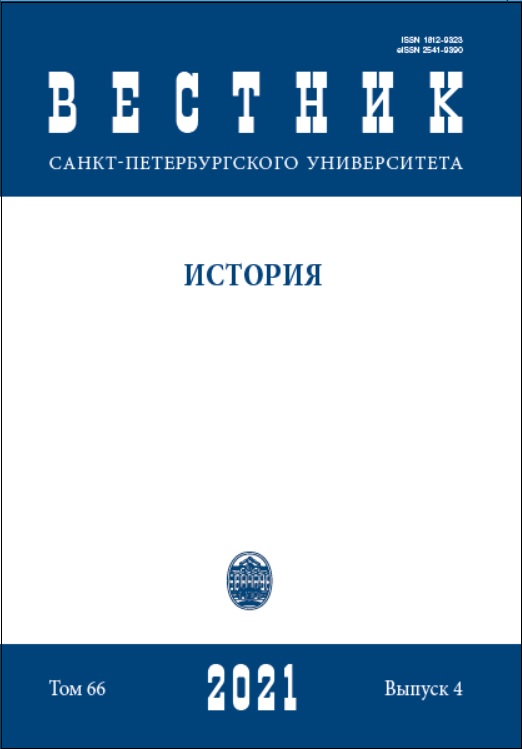Evolution of Demographic Studies of the Don Host in the Late Imperial Period
DOI:
https://doi.org/10.21638/spbu02.2021.402Abstract
Demographic processes on the territory of Don Host Oblast (until 1870 – Land) began to be studied from the beginning of the 19th century. Therefore, in modern domestic historiography this topic is considered well studied and researcher usually does not touch on it purposely, providing results obtained as far back as by pre-revolutionary authors. However, under closer acquaintance with the situation it becomes clear that pre-revolutionary authors pointed out serious inaccuracy of Don statistics. In this paper, for the first time in historiography, it is shown that as far as in 1860s a prominent statistician N.I. Krasnov highlighted the anomality of Don statistics and proposed to verify it via comparison with the experience of world statistical science. But the majority of authors of the second half of the 19th century asserted that the experience of world statistics is inapplicable to The Don Host. The paper also shows that such approach has by now led the study of Don demography of the second half of the 19th century to a dead end. Domestic historians study it building upon initially inaccurate data, moreover verification of this data by traditional historical methods is impossible. However, a mathematical-statistical model specially designed to reconstruct demographic processes in the period that interests us was developed by French mathematician N. Bonneuil with the help of Russian demographer E.V. Fursa. And the main conclusion of this paper is that from historical point of view this method is sufficiently reliable too, and its application by historians will allow the latter to significantly clarify the features of demography of pre-revolutionary period.
Keywords:
demographic research, Don Host Oblast, Don Cossacks, stochastic optimization, Lotka-McKendrick population model
Downloads
References
Downloads
Published
How to Cite
Issue
Section
License
Articles of "Vestnik of Saint Petersburg University. History" are open access distributed under the terms of the License Agreement with Saint Petersburg State University, which permits to the authors unrestricted distribution and self-archiving free of charge.





